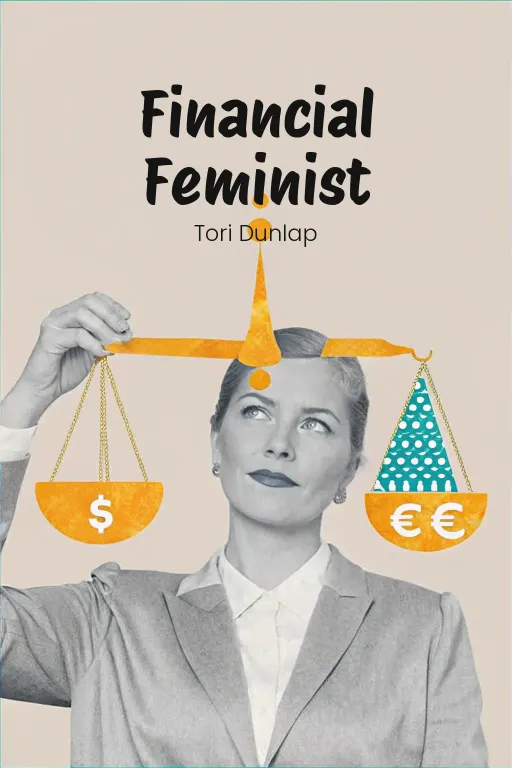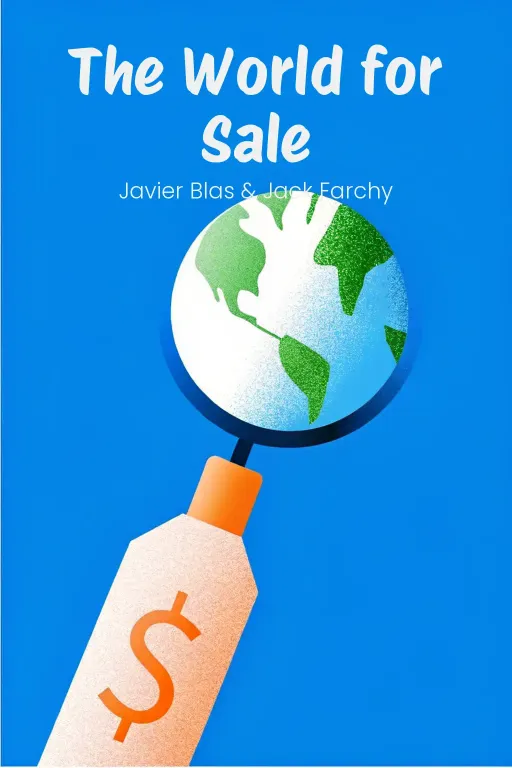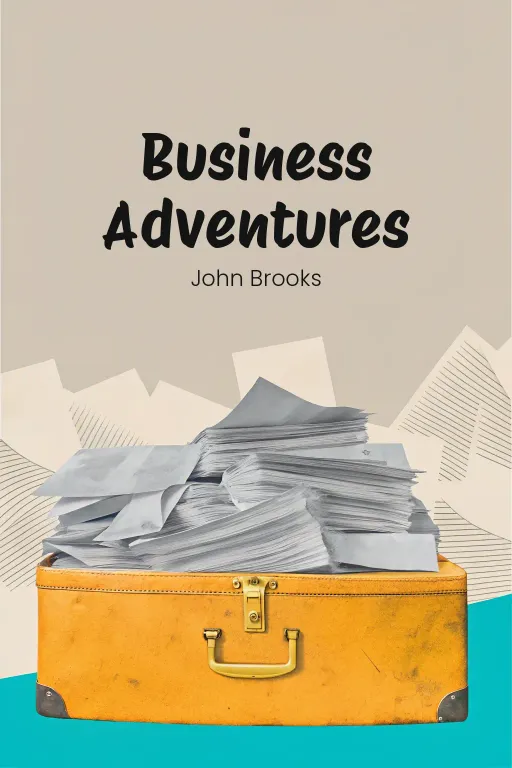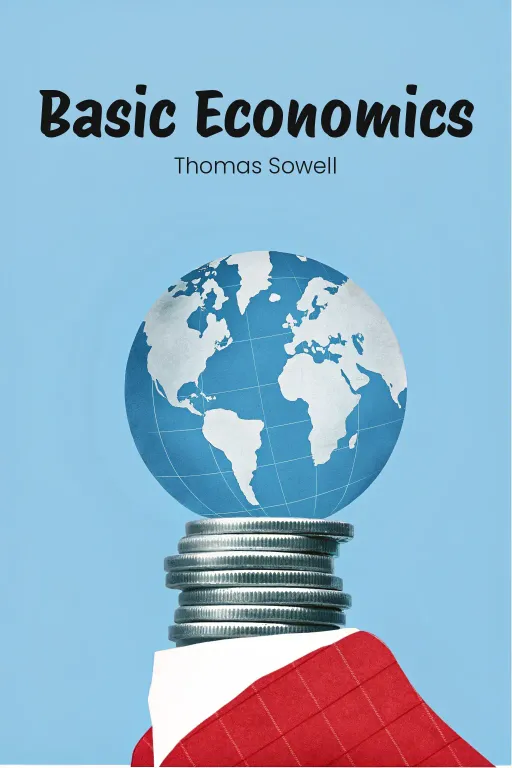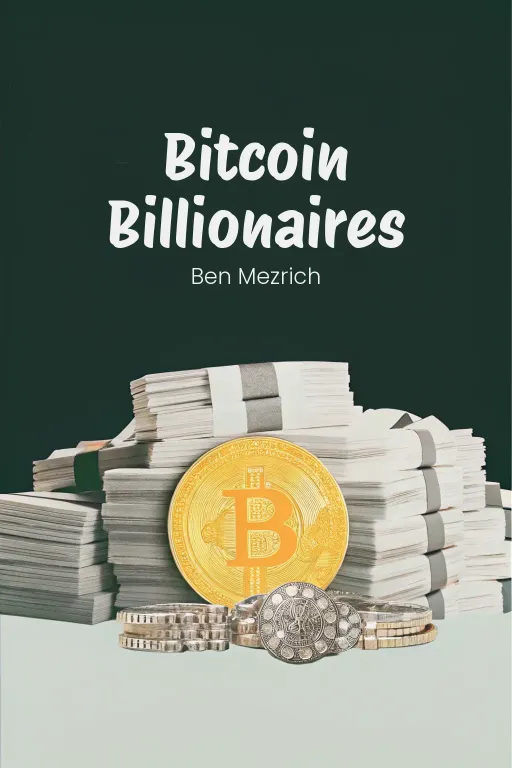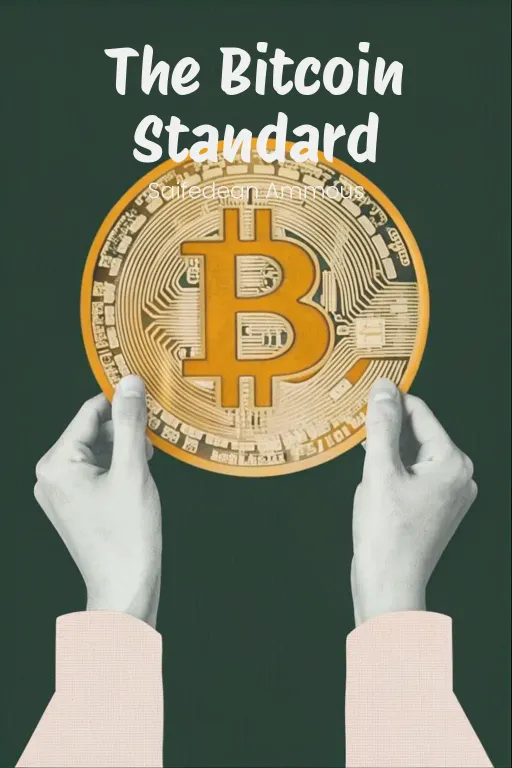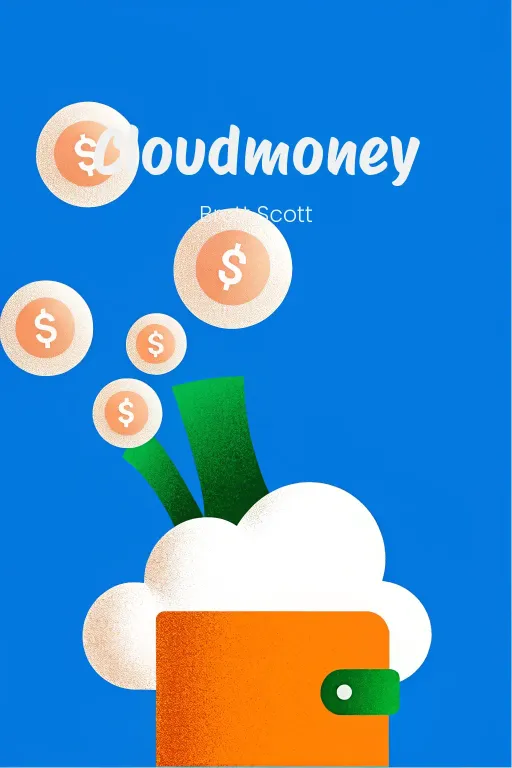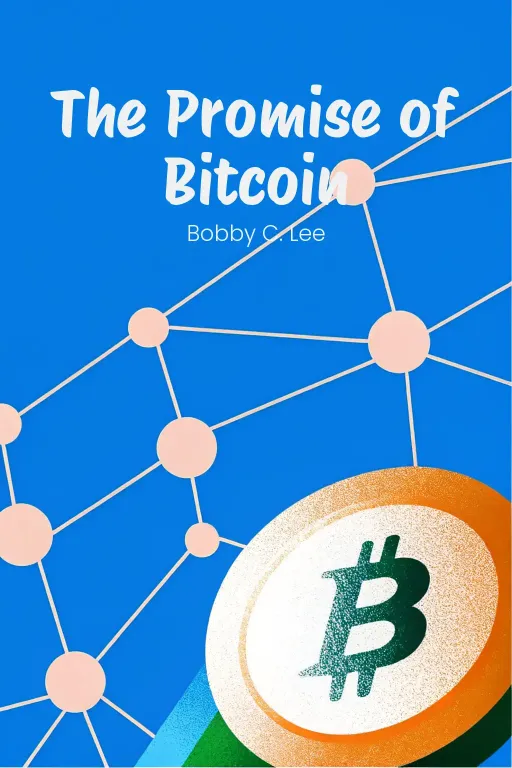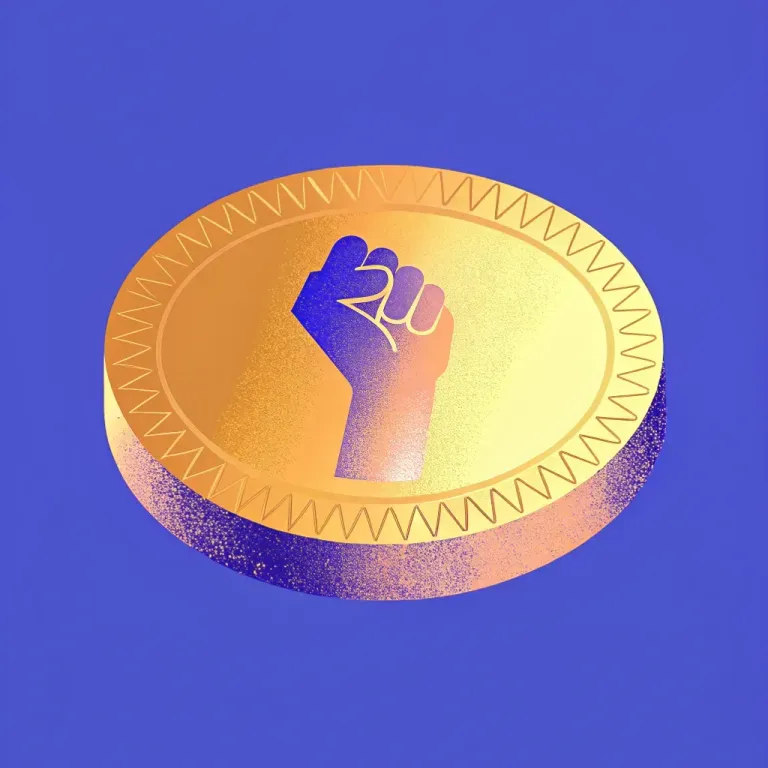
Money Mindset Reset: Take Control Now!
Podcast by Let's Talk Money with Sophia and Daniel
Overcome the Patriarchy's Bullsh*t to Master Your Money and Build a Life You Love
Money Mindset Reset: Take Control Now!
Part 1
Daniel: Hey everyone, welcome! Today, we're tackling a topic that's super relevant to all of us: our relationship with money. And the big question we're asking is this: How much of what we do with our money – you know, spending, saving, stressing – is actually us, and how much is shaped by the world around us? Sophia: Whew, Daniel, that's a loaded question. I mean, let's be real, money isn't just about the numbers, right? It's all tangled up with our emotions, our cultural backgrounds, and, let's not forget, systems that... well, they're not exactly designed to be fair to everyone. Especially women, right? Daniel: Precisely! And that’s exactly what today's book is all about! It's a mix of financial know-how and feminist ideas. It shows us that money is more than just a personal tool, that it can be also a way to challenge inequality. It really dives into how our feelings and society impact our financial choices, why women still face gaps in earnings and investments, and what practical steps we can take to become truly independent. What I truly appreciate, though, is that it goes beyond just empowering individuals. The book encourages us to think big – about being open, working together, and creating supportive communities where real change can happen. Sophia: Ambitious, but also sounds super practical. So where does today's conversation fit in, exactly? Daniel: We’re going to break it down into three key layers, right? First, we’re going to look at how our emotions and what society expects of us are messing with our money habits. And spoiler alert: It's about way more than just grabbing that daily latte. Second, we’re equipping you with the tools you need—budgeting, investing, all that stuff—to take back control of your financial story. And the kicker? Getting your own finances in order isn't just about you. It's about changing the whole game for everyone. Sophia: Okay, so it's like… personal finance with a purpose? Daniel: Exactly! Think of it as a roadmap, right? We start with understanding ourselves, having those "aha!" moments about what's “really” driving our money behaviors. Then, we move to action—practical steps you can take right now. And finally, we look at the big picture, connecting our personal empowerment to changing things on a wider scale. Ready to get started, Sophia? Sophia: Always. Let’s dive in.
Emotional and Societal Influences on Financial Choices
Part 2
Daniel: Let's get started by talking about how our emotions and what society expects of us affects how we handle our finances. You might think money decisions are all about logic, just balancing what you earn with what you spend. But really, they're closely linked to feelings like shame, guilt, or even pride. Plus, there are these cultural norms that influence us without us even realizing it. Sophia: Exactly. It's like we've been given a financial system to run on that's not just about numbers, but also about, you know, centuries of societal programming. And those cultural scripts? Well, they're not really helping anyone out. Daniel: Exactly. So, let’s dive into the emotional side first. Take Kristin's story, for example. She spent seven years at a company, and she was constantly facing microaggressions and feeling undervalued. By the time she reached out to the author of the book, she was just exhausted and stuck in a mental loop of frustration and fear, and ultimately, it was about financial insecurity. Kristin's reluctance to change jobs wasn't just about the money itself; it was about what that money meant to her emotionally—things like safety and stability—and the fear of losing that. Sophia: Yeah, Kristin's story is something a lot of people can relate to. She wasn't just burned out from work, she had also internalized this fear that any financial mistake would be devastating. And honestly, that fear can be paralyzing. So, how did she even begin to deal with all of that? Daniel: Well, the big change for Kristin didn't start with just looking at numbers. It started with her being vulnerable, with allowing herself to acknowledge and process the emotions she connected to money. The book suggests, for cases like this, to journal about financial 'flashpoints.’ It’s about looking back at moments when money was a big deal—whether it was a fight with a partner, your first big paycheck, or maybe a decision you now regret. Sophia: So, it's like financial therapy, but on paper? Daniel: Exactly. For Kristin, thinking about these moments helped her separate the shame and fear that were holding her back, and she could begin to see money more as a tool instead of this oppressive weight. Sophia: Okay, but let’s hold on a second. Writing about my feelings after making a bad financial decision… I see how that could be therapeutic, but does it actually change anything? I mean, how do you go from just being aware of the problem to actually doing something about it? Daniel: That’s a great question. Awareness is really just the first step; it helps clear the fog so you can see patterns and change direction. If someone realizes that a major flashpoint was the guilt they felt after overspending at Christmas, understanding that feeling might reveal a pattern of seeking validation by giving gifts. And once they see that, the next step is just setting boundaries, like creating a holiday budget or talking to family about spending limits. The important thing is that real change happens when we face our emotions, rather than trying to avoid them. Sophia: Alright, you’ve convinced me. So, we’ve got emotions on one side, but then there’s also society, right? All those external pressures that tell you, directly or indirectly; whether you’re "allowed" to feel confident or capable about money. Let's talk about those financial myths and societal narratives. Daniel: Yes, and these are so common that you barely notice them unless you really stop and analyze what they do. Take, for instance, the myth that “hard work equals wealth.” Sophia: Oh, yes. The famous "pull yourself up by your bootstraps" story that ignores problems in the system, like unfair wages or the gender pay gap. Daniel: Exactly. The book tells the story about a single mother who's working multiple jobs and trying to get out of debt, but she keeps falling further behind. Even though she's working incredibly hard, she's still struggling with things like rising childcare costs and wages that just aren't going up. The problem isn't her; it's the system. But because this myth glorifies individual effort, she ends up feeling like her difficulties are a personal failure, rather than the result of these structural inequities. Sophia: It really is infuriating. And the myth is like a double punch. First, it makes people feel ashamed, questioning their worth. Then, it conveniently absolves the system of any responsibility. "You’re poor? Must be your fault.” Daniel: Agreed. And that brings us to a related issue: the fact that society doesn't want us to talk about money. The idea that it's impolite or even shameful to discuss your salary, your savings, or your financial goals. Sophia: Oh, definitely. It's like the first rule of finance club is: you do not talk about finance club. Daniel: Exactly! The problem with that is that silence allows inequality to continue. If women aren’t openly talking about their salaries, they won’t realize they’re being underpaid, and they’ll miss opportunities to advocate for themselves. Caitlin Zaloom’s research really drives this home; she says that the taboo around money keeps people in the dark, which reinforces power imbalances instead of breaking them down. Sophia: So how do we fight this “don’t ask, don’t tell” culture around money? Daniel: Well, one way is to build financial transparency through communities. Imagine salary-sharing groups or investment meetups, where people freely share strategies, benchmarks, and insights. These networks not only empower individuals, but they also dismantle the secrecy that perpetuates inequality. When people know what's possible, they start dreaming bigger—and negotiating harder. Sophia: OK, I love that idea. But what I find most interesting is that even when people do know about finance, those societal expectations, especially for women, still come into play. Case in point: Victoria and the bridal dress, right? Daniel: Yes! Victoria hesitated to buy a dress that she really loved because she was afraid of being judged for spending too much. And here’s the thing: she realized that her fiancé wouldn't face the same scrutiny if he were to buy something similar. This moment made her realize how cultural conditioning had shaped her discomfort. In the end, she viewed the purchase as joyful and celebratory, and that helped her take back control of both the decision and the story she’d attached to it. Sophia: Yeah, it sounds like her reaction wasn’t even about the dress itself—it was about years of societal pressure telling her to be frugal, modest, or self-sacrificing. Daniel: Absolutely. That’s where tools like a ‘money diary’ can really make a difference. It’s not just about tracking your spending, but also about thinking about why you’re spending. Was the dress about self-expression? Was it about validation? Was it a fear of rejection? When women align their spending with their own priorities, rather than what society expects, financial decisions become empowering, rather than something that causes anxiety. Sophia: Got it. So, whether it’s journaling, transparent discussions, or money diaries, these methods aren’t just about the technical aspects of money. They’re about rewiring the scripts - the emotional ones you’ve internalized and the societal ones you've been handed - to put you back in control.
Practical Financial Strategies for Empowerment
Part 3
Daniel: So, by acknowledging these emotional and societal hurdles, we can move towards some real strategies for building a solid financial base. And that’s what we’re diving into next: practical financial strategies for empowerment. This section takes what we’ve already talked about and offers some concrete, scalable solutions – like budgeting, managing debt, and investing – while keeping your personal values and goals front and center. Sophia: Exactly, because at some point, you have to shift from understanding "why" to figuring out "how." So, let's get down to business. Where do we begin, Daniel? Daniel: Okay, let's start with the 3-Bucket Budget System. It’s a pretty straightforward, yet potentially life-changing way to manage your money. You basically divide your income into three essential categories: Bare Necessities, Goals, and Treat Yourself. This system isn’t just about covering your bills and saving for the future – it’s also about enjoying life right now. Sophia: A system that actually encourages you to spend money? Now you’ve got my attention. Let’s start with the "Bare Necessities" bucket – sounds like that covers the essentials. Daniel: Exactly. The "Bare Necessities" bucket is for things like housing, food, utilities, and any critical debt payments. These are the non-negotiables that keep you afloat. If you're living in, say, a city with crazy high rent, this bucket might eat up a big chunk of your income. But understanding those fixed costs also gives you a chance to see where you can optimize. Sophia: Optimize how? Like, downsizing to a smaller apartment or switching to cheaper groceries? Daniel: That's one way to go about it. For example, if someone realizes that rent is taking up 60% of their income, they might decide to find a roommate or move to a more affordable neighborhood. Or, they could cut back on non-essential spending in other areas to free up money for this bucket. The key is, knowing exactly what your essentials cost gives you clarity – and options. Sophia: I get it. This bucket is about making sure your financial house is in order. What about the second bucket, "Goals"? I’m guessing that’s where savings and long-term planning come in? Daniel: Spot on. "Goals" is the bucket for building security and planning for the future – whether that’s saving for retirement, building an emergency fund, or paying off debt. A great example from the book is someone who starts by putting just 10% of their income into a high-yield savings account each month. Over time, they accumulate, say, $6,000 – enough to cover three months of expenses. This gives them the confidence to leave a job they hate, knowing they have that financial cushion. Sophia: Ok, I love that freedom-to-walk-away idea. An emergency fund isn’t just peace of mind – it’s leverage. But how do you balance saving for tomorrow when the cost of living today feels insane? That’s where the third bucket – "Treat Yourself" – comes in, right? Daniel: Absolutely, Sophia. This bucket is for spending money on things that bring you joy, without feeling guilty about it. Whether that’s eating out, pursuing hobbies, or going on the occasional trip. Take Victoria, for example – she used her “Treat Yourself” money to buy a fancy dress for her bridal shower. At first, she felt bad spending that kind of money, but then she realized it was more like a form of self-care. So it became empowering, instead of guilt-inducing. Sophia: I like that -- it turns spending into an act of intention, rather than just mindless impulse. But, how do you keep this system working smoothly without it becoming a constant mental burden? Daniel: Well, automation is key, really. You set up those automatic transfers to your "Bare Necessities," "Goals," and "Treat Yourself" accounts as soon as your paycheck hits. That way, you’re prioritizing your financial goals without even thinking about it, and you are not tempted to spend money from the wrong bucket. Sophia: Right, so it’s about setting up the system and then letting it do the heavy lifting? Alright, that covers budgeting. What’s next? Daniel: Next, we tackle debt management. This is a crucial aspect of financial empowerment because debt can feel like a real anchor, weighing people down both emotionally and financially. The book highlights two main strategies here: targeting high-interest debt and negotiating with lenders. Sophia: High-interest debt… we’re talking about those credit cards with crazy high rates, right? Daniel: Exactly. Credit card debt can snowball fast if you're not careful. Let’s say someone owes $15,000 on a card with a 20% interest rate. Putting any extra money towards that balance could save them thousands over time. By strategically using extra funds to pay down high-interest debt, people “really” speed up their journey to financial freedom – and reduce stress along the way. Sophia: Ok, but what about people dealing with lenders who just won’t budge? How do you even start negotiating for better terms? Daniel: You begin with preparation. For example, someone facing financial hardship might research average interest rates and prepare a solid outline to explain their situation. When they call the creditor, they might ask for a lower rate or a revised repayment plan. Often, creditors would rather renegotiate terms than risk not getting paid at all. One example from the book showed how this strategy saved a borrower hundreds of dollars over the life of the loan. Sophia: Smart. So, it’s a combination of problem-solving and standing up for yourself. But how do you avoid racking up more debt while you're trying to pay it off? Daniel: That's where having an emergency fund during repayment comes in. Then you avoid racking up debt again to cover unexpected expenses, like car repairs or medical bills. By having both a safety net and a debt reduction plan, you can tackle financial stress from all sides. Sophia: Makes sense. So, we’ve covered budgeting and debt – two essential things for managing what you have and what you owe. Let’s get to the "fun" part: investing. Daniel: Absolutely! Investing is about turning your money into a powerful tool for growth. But here's the thing – it can seem intimidating to a lot of people, often times especially women I might add, due to its complexity and feeling like such a big risk. Education and taking small steps can “really” help make the process feel less daunting, and it all starts with understanding compounding interest. Sophia: Ah, the magic of compound interest – the idea that your money makes money, and that money makes even more money. Got an example? Daniel: Sure. Imagine someone invests $1,000 yearly starting at age 25, earning a 7% annual return. By 65, they’d have over $260,000. But if they wait until 35, that total drops to around $120,000. This shows how time “really” amplifies returns, so starting early is crucial – even if it's just with small amounts. Sophia: That's a big difference. But, if I'm brand new to this, where do I even begin? Daniel: Start simple—with index funds. They offer broad exposure by tracking entire markets, and they also have very low fees. For instance, putting $5,000 into an index fund and watching it grow over five years can boost both confidence and financial returns. And if you're looking for simplicity, robo-advisors are a great tool – they handle portfolio management automatically based on your goals and risk tolerance. Sophia: So, it’s about breaking it down and showing people that investing isn't just for Wall Street experts. What about diversification? How does that fit in? Daniel: Diversification is your safety net. By spreading your investments across different sectors or asset types, you lower the risk of losing everything during market downturns. For instance, pairing stocks with less risky assets like bonds can create a balanced approach. Sophia: Alright, I’m convinced. Budgeting, debt management, and investing – all essential. But it's not just about financial security; it’s about empowerment.
Collective Advocacy and Systemic Change
Part 4
Daniel: So, with all these strategies we've discussed, we've seen how financial empowerment can actually lead to broader societal change. This is really where we start shifting from just focusing on personal financial growth to recognizing the power of collective action and standing up for what's right. It’s not just about individual actions anymore; it's about pushing for systemic reform, really tying financial feminism to broader societal transformation. And you know what I love most? It’s this simple framework: the Four Ds of Financial Feminism—Discussion, Donation, Decision, and Development. Sophia: Okay, Daniel, you've got my attention. So, these Four Ds, are they basically a step-by-step guide on how to turn personal financial wins into real societal impact? Daniel: Exactly! They’re a very practical framework for using our financial power to challenge inequalities and “really” amplify collective progress. Each "D" represents a key area where we can move beyond individual empowerment to transformative societal change. So, shall we dive into the first one: Discussion? Sophia: Alright, lay it on me. What's so important about talking about money? Daniel: Well, Discussion is all about breaking down that taboo surrounding money. This idea that "it's rude to talk about finances" doesn't just keep things secret; it actually reinforces inequality. If people aren't sharing what they're earning, spending, or their saving strategies, it becomes much harder to spot disparities or even learn from each other. Open dialogue actually normalizes financial conversations and creates an environment where we can all be empowered. Sophia: Yeah, that makes sense. But, easier said than done, right? People don't just stay quiet about money for no reason. It's often tied to shame or fear of judgment. Do you have any real-world examples of how opening up about money actually leads to progress? Daniel: Absolutely! Well, think about Simran Kaur, co-host of the Girls That Invest podcast. She openly shared her financial mistakes and goals with her friends, and it encouraged them to do the same. These vulnerable conversations really became a way for her community to exchange insights about investments, budgeting, and the financial challenges that they were facing. It wasn’t just about learning individually; it was about a creating a shared space for growth together. Sophia: So, it's like a domino effect then. One person gets vulnerable, gives others permission to share too, and suddenly, you're all learning and building strategies together. Pretty cool. Daniel: Exactly! And, these conversations can extend beyond just casual chats. Communities can start organizing workshops, create accountability groups, or even host salary transparency forums. The more we talk about money, the more we normalize it, and the less it's a source of shame or mystery for everyone. Sophia: OK, let's switch gears. We've covered the communication angle. Now what's next on the Four Ds list? Ah, I believe it's Donation? Daniel: You got it! Donation is about channeling your financial stability into having an impact on the community. Once someone’s achieved a certain level of financial security, they’re in a position to “really” uplift others, whether that's through financial contributions, maybe volunteering their time, or sharing resources and expertise. The key here is to ensure that your giving is not only meaningful but also sustainable. Sophia: Sustainable is definitely the keyword, right? We've all heard stories about generous people who end up overextending themselves and then burning out later. Is there a way to give back without compromising your own well-being? Daniel: Great question! John and David, the hosts of the Queer Money Podcast, have a great example of how to strike that balance. Early on, they donated impulsively, and it often came at the expense of their own financial stability. However, as they achieved greater financial security, they switched to a more consistent approach. They set up recurring, manageable contributions to organizations that they supported for the long run. This ensures that their giving has a sustained impact without compromising their own financial well-being. Sophia: That’s a pretty smart shift. It's like switching from random bursts of generosity to building a steady pipeline of support. And I like that you “really” don't need to be ultra-rich to make a difference. Even small, regular contributions can add up over time, right? Daniel: Exactly! And it's not just about money. Many people contribute by mentoring, sharing skills, or volunteering their time, which can be just as impactful. Regardless of the scale, what's important is the intention behind it. Sophia: Got it. We've gone from conversations to giving. Now what about Decision, the third D? Daniel: So, decision-making is about aligning your everyday finances, like what you buy and where you invest, with your personal values. Every purchase and investment is actually an opportunity to support broader societal goals. Tanja Hester calls this wallet activism, and it encourages people to ask questions like: "Who benefits from my spending? Who gets harmed? Is my choice building equity or inequity in the world?" Sophia: So, instead of just mindlessly buying or investing, you're “really” treating every financial decision as a kind of voting ballot? Like, am I putting my money towards something that I actually want to support and see grow? Daniel: Exactly. Think about choosing to shop at women-owned or minority-owned businesses instead of always going for those big corporations. Or, consider your investments, directing your portfolio towards ESG funds. ESG stands for Environmental, Social, and Governance. These funds prioritize companies with ethical practices so that your investments actually align with fostering sustainability and social equity. Sophia: Okay, but let me play devil's advocate here for a sec. The whole ESG world sounds great on paper, but I've also heard it can be somewhat of a minefield. Some of these funds aren't as sustainable or ethical as they claim. So, how do you actually navigate through that? Daniel: That's a valid point. It's true that not all ESG funds are created equal, so doing your homework is “really” crucial. Pay attention to exactly how these firms define "ethical" or "sustainable" and look for transparency in their criteria. There are great tools out there that can help you identify funds that genuinely align with your values, like the sustainability ratings from Morningstar. Sophia: Understood. So it's about being thoughtful and asking the tough questions, not just blindly jumping on the bandwagon because of buzzwords. And finally, we've got Development. What's this one about? Daniel: Development highlights the importance of continuous learning and advocating for systemic change. Financial literacy isn’t a one-time lesson. It’s a continuous process. And beyond just learning how to manage your personal finances, it involves understanding systemic inequities, then working to dismantle them, whether through supporting reforms, challenging discriminatory practices, or educating others. Sophia: Alright, give me some specifics. What kind of systemic advocacy are we talking about here? Daniel: Think about issues like pay equity, discriminatory lending practices, or even barriers to accessing credit that disproportionately affect marginalized groups. Advocacy might mean pushing for policy changes, joining organizations dedicated to financial justice, or simply raising awareness within your own circles. Sophia: So, if I'm understanding this correctly, Development “really” tackles the bigger picture. It's like saying, "Okay, I'm secure enough in my finances to now focus on fixing the system that creates these problems and inequities in the first place." Daniel: Exactly! The Four Ds ultimately show that financial feminism is not just about personal gain. By engaging in Discussion, Donation, Decision, and Development, individuals are becoming part of a much larger movement that “really” bridges personal growth and systemic reform.
Conclusion
Part 5
Daniel: Wow, we really covered a lot today! From the emotional baggage we carry around money to the practical steps we can take to take control. We emphasized vulnerability and really looking inward, and then broke down useful strategies like the Three-Bucket Budget. Ultimately, it's about moving from being stuck to actually taking action, right? Sophia: Absolutely, Daniel. And it's not just about personal finance, is it? We also discussed how financial empowerment can creates changes in the wider world, challenging social norms and inequalities. These Four Ds—Discussion, Donation, Decision, and Development—are actually guidelines that can change personal victories to something much bigger. Daniel: Exactly! Okay, so if our listeners only take one thing away from this, let it be this: Money isn't just about numbers; it's a tool. You can use it to express yourself, create stability, and build the kind of life and society that you want. So, just take one small step today. Maybe journal about your financial triggers, create a basic budget, or just talk about money with someone. Sophia: Exactly, the key is to start somewhere, right? Because small actions add up just like compound interest does. And when many of us change how we think about and handle money, we are doing more than just helping ourselves, it changes the whole conversation. Daniel: Financial feminism, or really financial empowerment, it’s not just a “me” thing, it’s a “we” thing. Thanks for tuning in today, and let’s build a future where everyone feels empowered when it comes to money.
